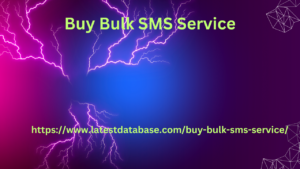Message System Database: The Powerhouse Behind Your Chats
The constant ping of notifications, the thrill of a new message – messaging systems have become an ingrained part of our daily lives. the scenes to ensure your messages reach their intended recipient? The answer lies in the message system database, a complex yet crucial piece of technology.
What is a Message System Database?
Imagine a giant digital filing cabinet specifically designed for messages. That’s essentially what a message system database is. It’s a structured collection of data that stores and manages all the information related to your messages, including:
- Sender and recipient information: User IDs, usernames, or contact details.
- Message content: The actual text, images, videos, or voice messages you send.
- Timestamps: The date and time a message was sent and received.
- Delivery status: Whether a message was delivered successfully or not (seen, read, etc.).
- Metadata: Additional information like message threads, attachments, or message flags.
How Does a Message System Database Work?
Here’s a simplified breakdown of how a message system database operates:
- Sending a Message: When you hit “send” on your message, the system first authenticates you and retrieves your recipient’s information from the database.
- Data Storage: The message content and metadata are then stored in the database.
- Delivery: The system utilizes the recipient’s information to route the message for delivery. This might involve pushing it to their device or storing it on a server until they access the platform.
- Delivery Status Updates: The database keeps track of whether a message is delivered and updates the status accordingly.
Types of Message System Databases:
Different messaging systems might utilize variou 10000 SMS send to Israel s database technologies depending on their needs. Here are some common types:
- Relational Databases: These are structured databases with tables linked by relationships, often used for storing user information and message threads.
- NoSQL Databases: These offer more flexibility for storing unstructured data like message content (text, images, etc.).
- Distributed Databases: For large-scale messaging systems with millions of users, distributed databases can handle the high volume of data efficiently.
Importance of Message System Databases:
A well-designed message system database is vital for several reasons:
- Scalability: It allows the system to handle a growing number of users and messages without compromising performance.
- Reliability: Ensures messages are stored securely and retrieved efficiently.
- Search Functionality: Enables users to search for specific messages or keywords within their message history.
- Security: Databases implement measures to protect user privacy and message confidentiality.
The Future of Message System Databases:
As messaging systems evolve, so too will the underlying databases. Here are some potential future trends:
- Integration with Artificial Intelligence (AI): AI could be used to analyze message content, personalize communication, and improve spam filtering.
- Focus on Decentralization: Blockchain technology could potentially offer more secure and user-controlled message storage solutions.
Conclusion
The next time you send a message, take a moment t Live Chat for Lead Generation o appreciate the complex yet essential role message system databases play in facilitating our communication. These powerful tools ensure our messages are delivered seamlessly, shaping the way we connect and interact in today’s digital world.

